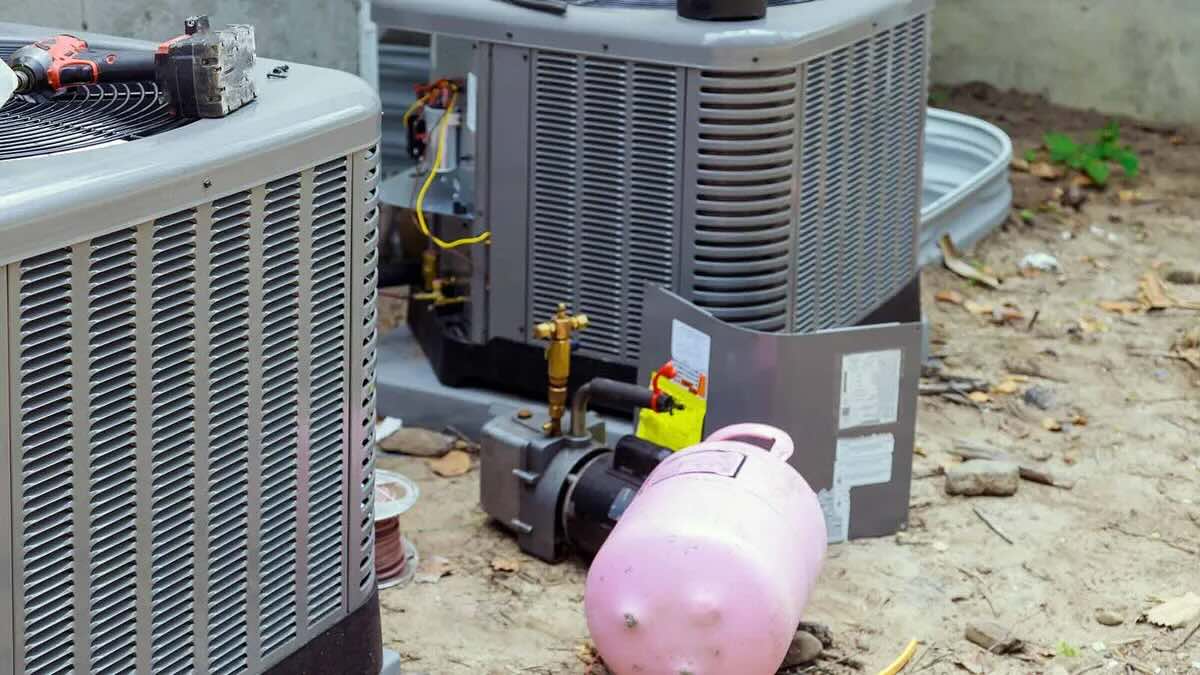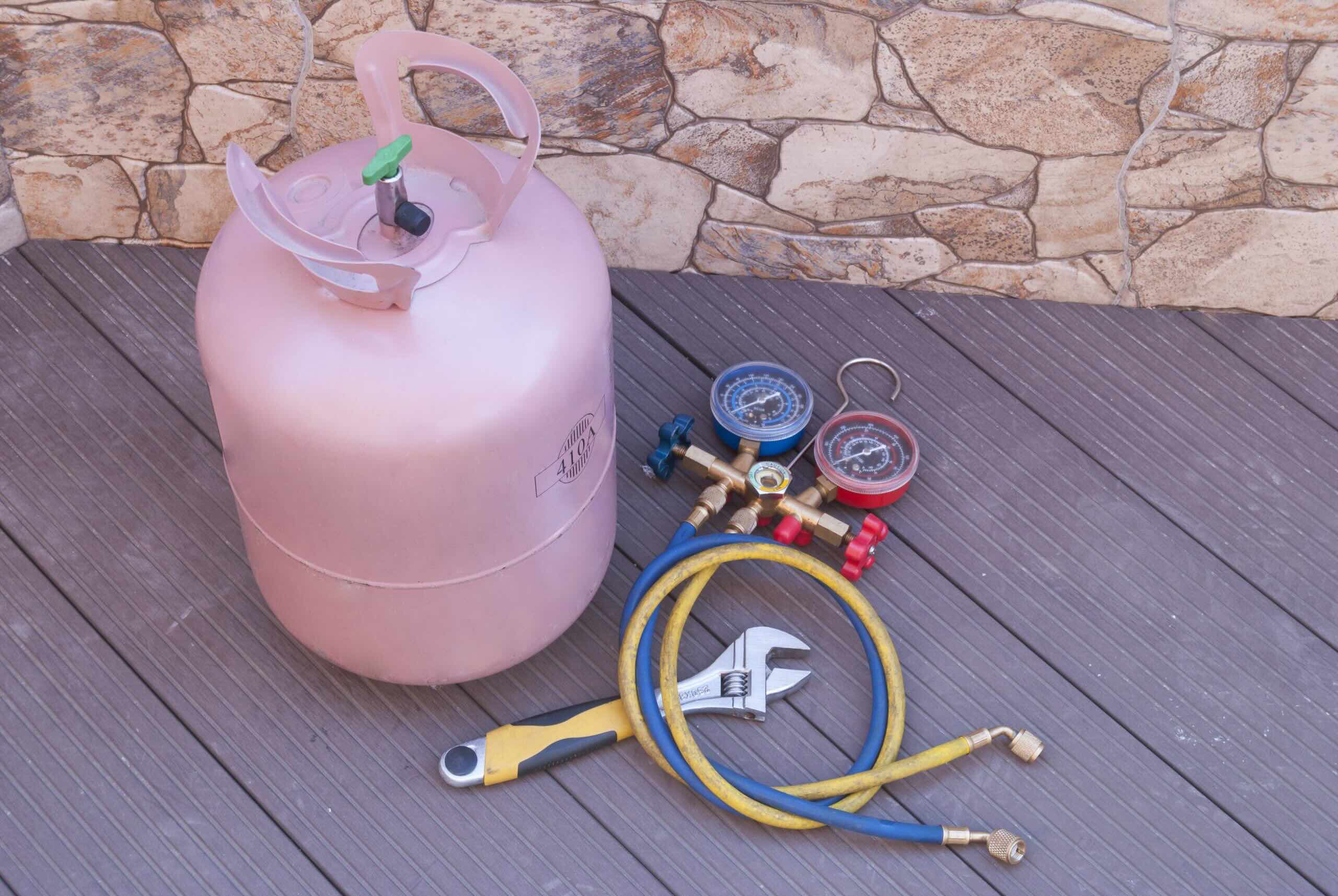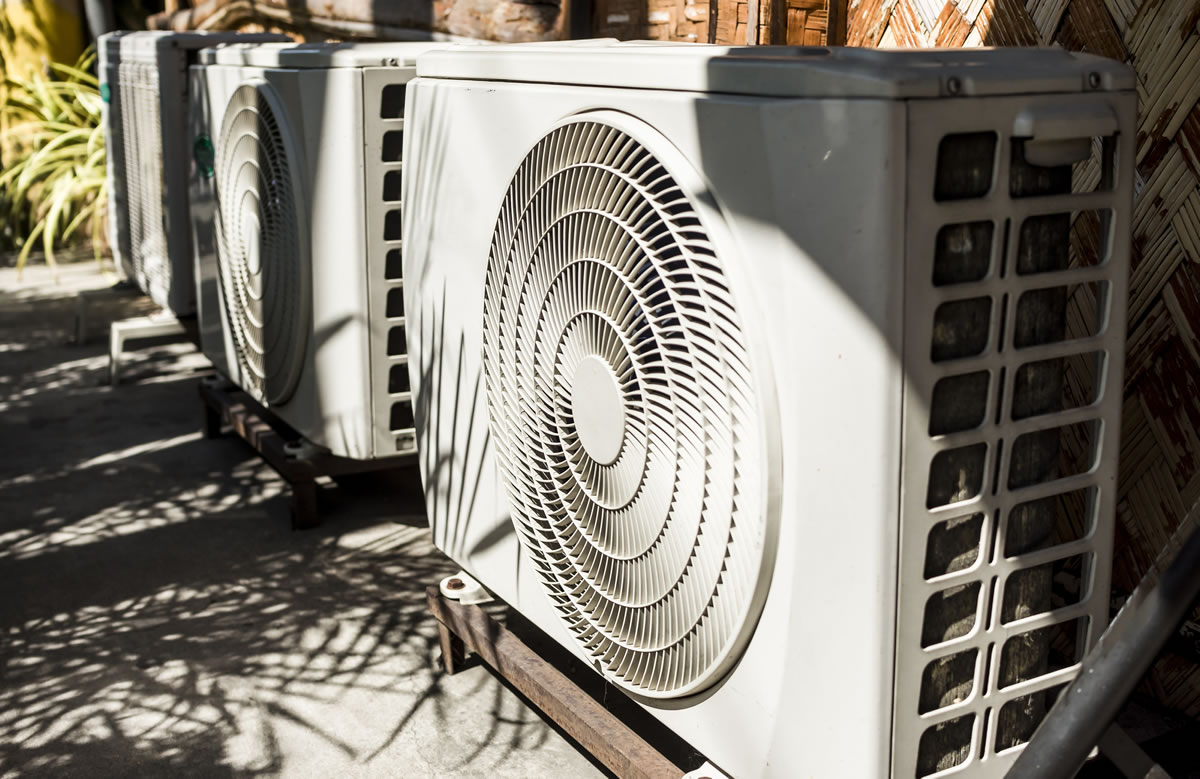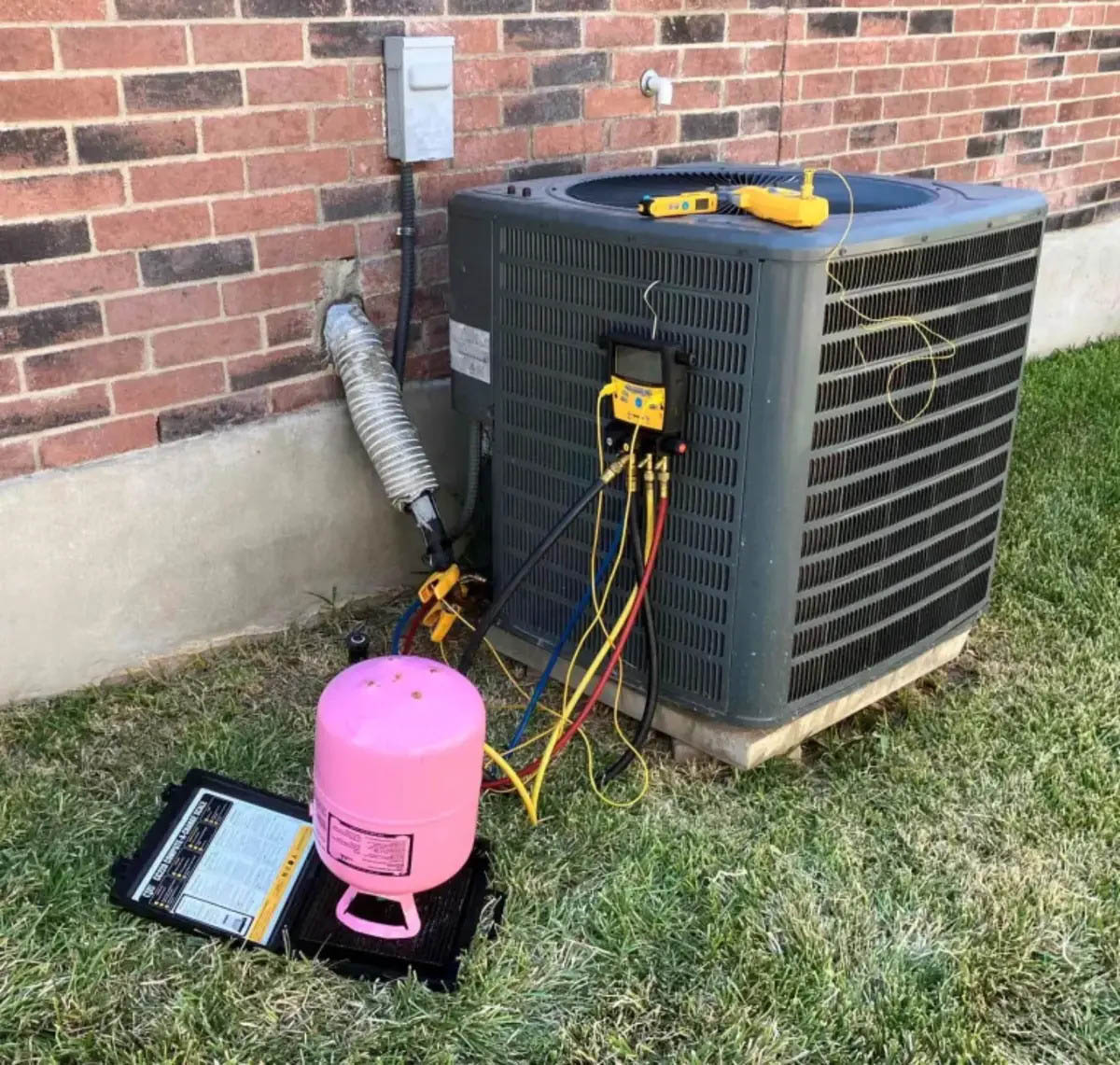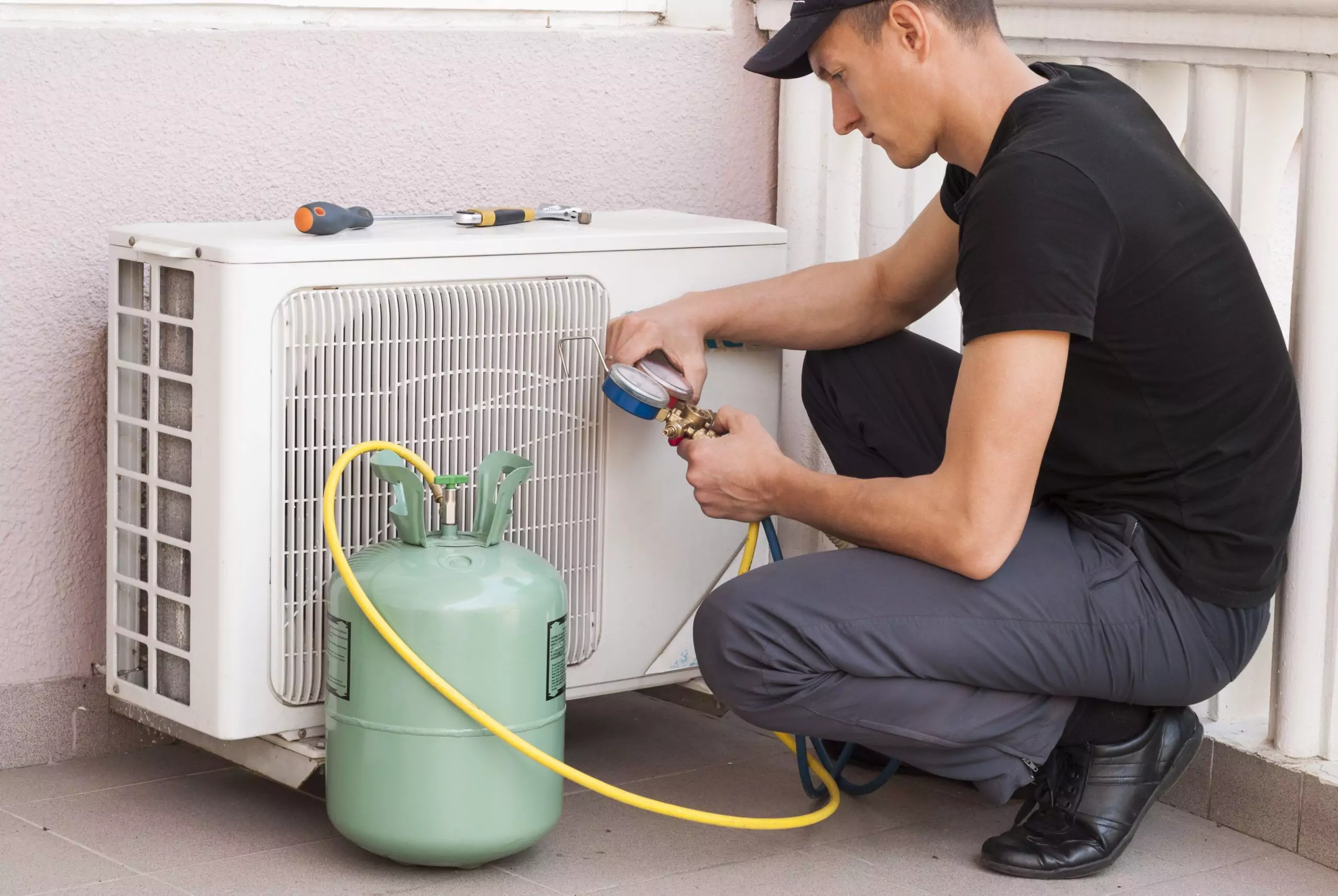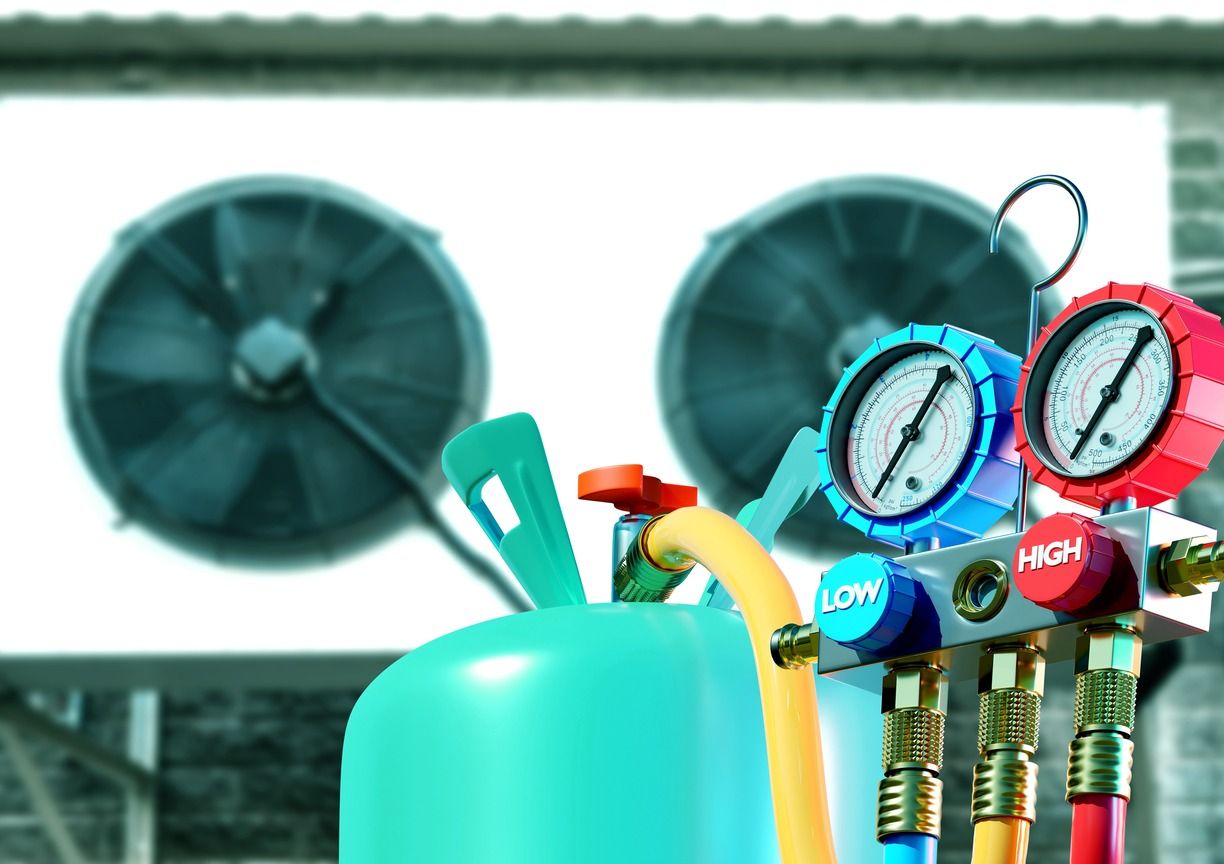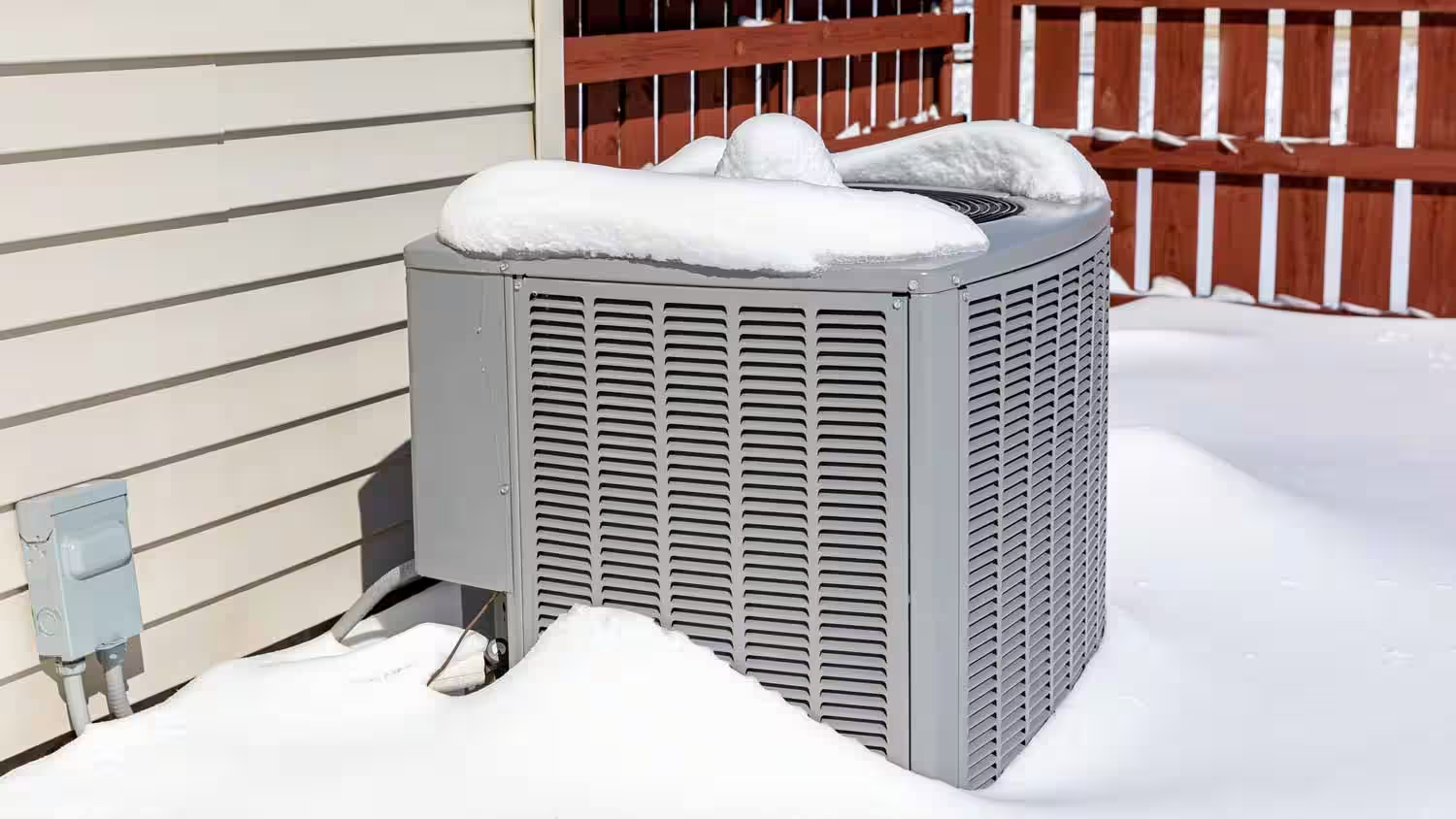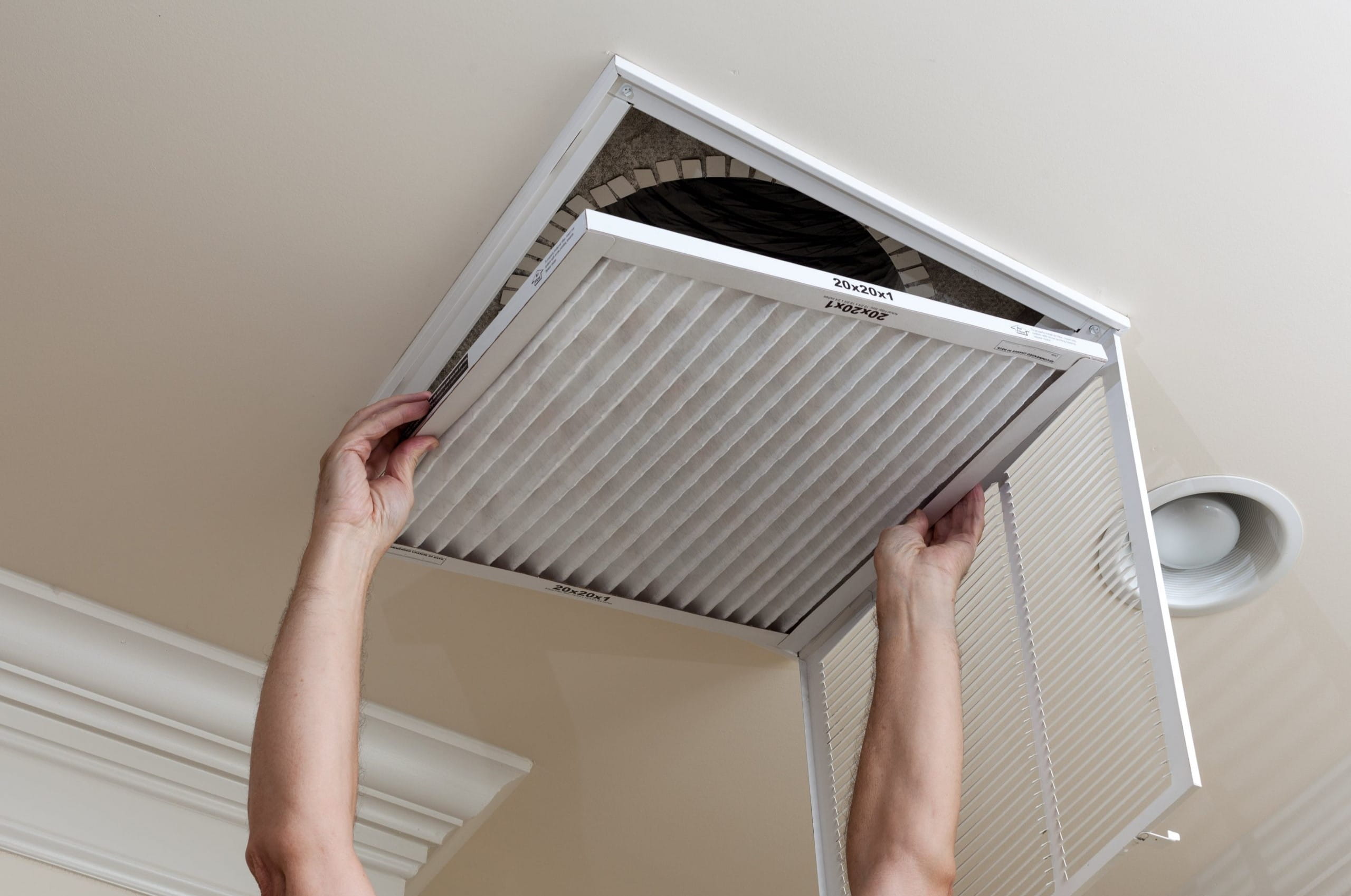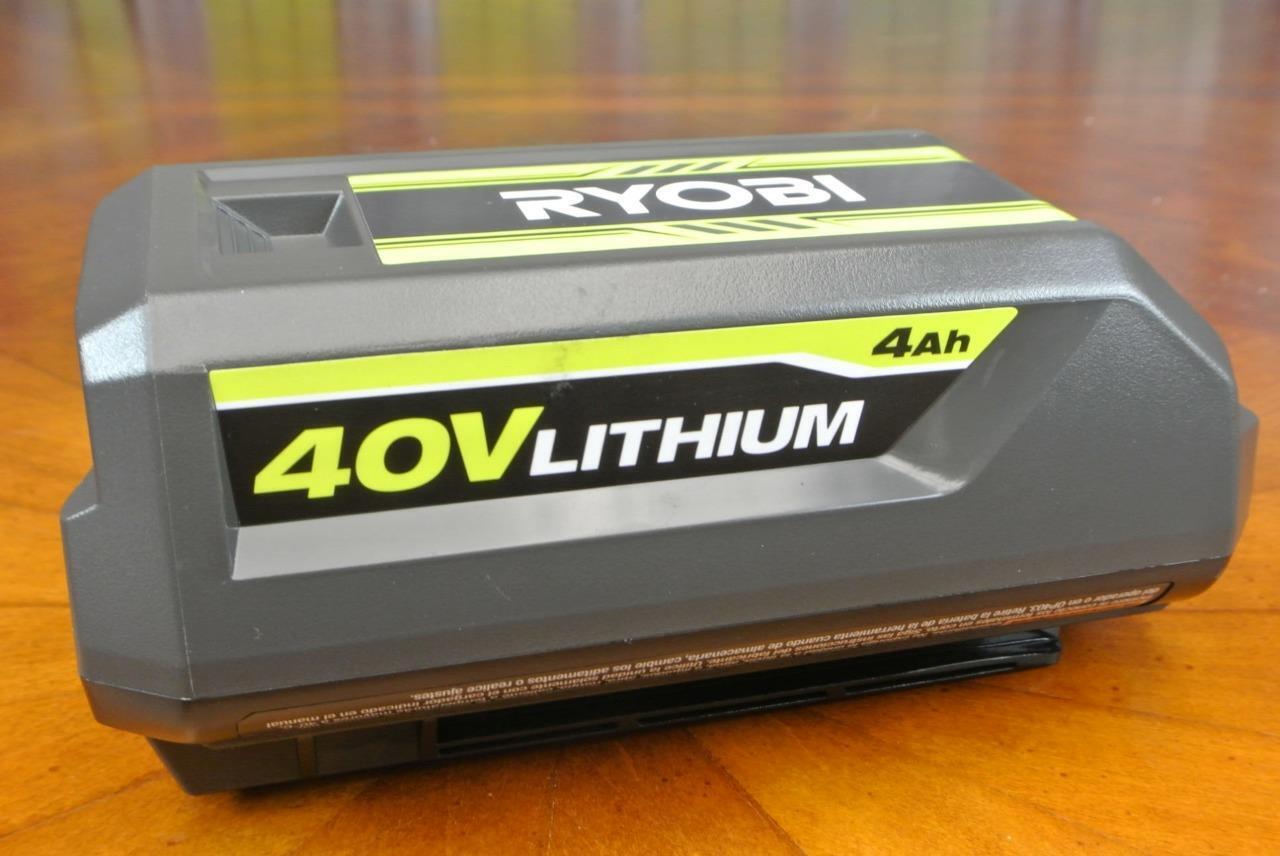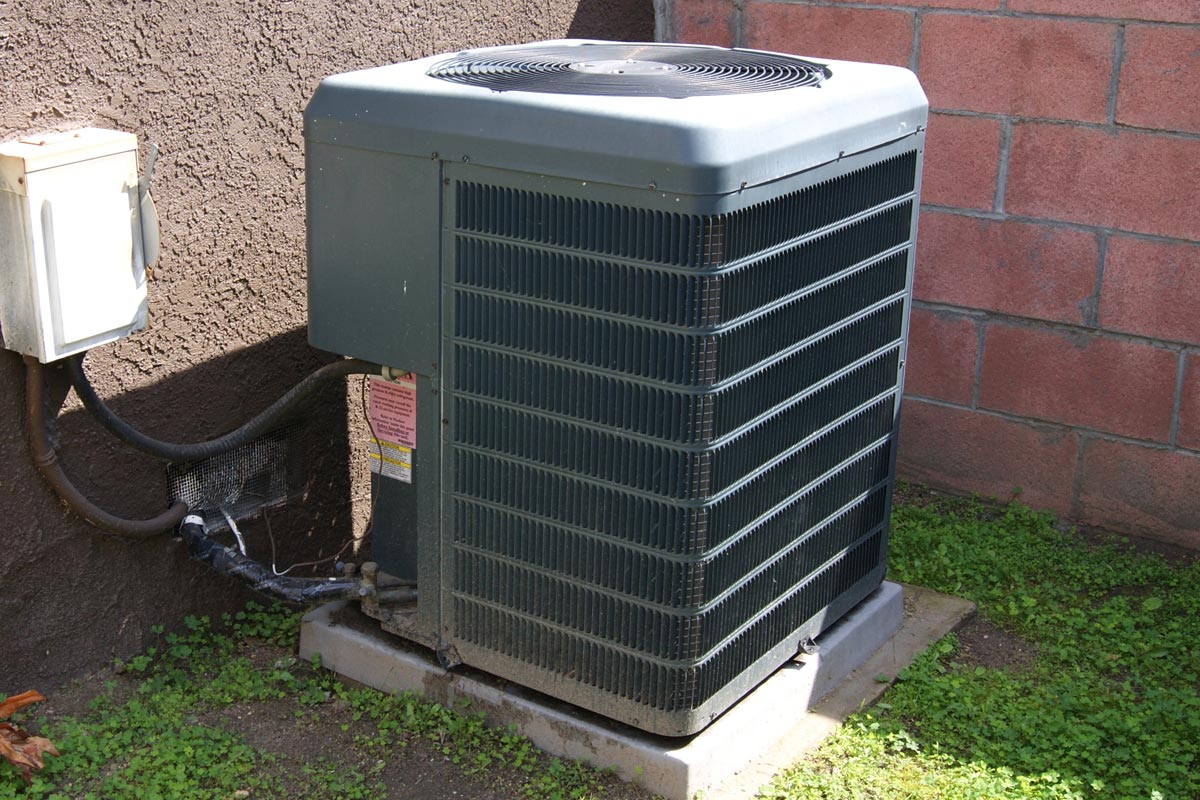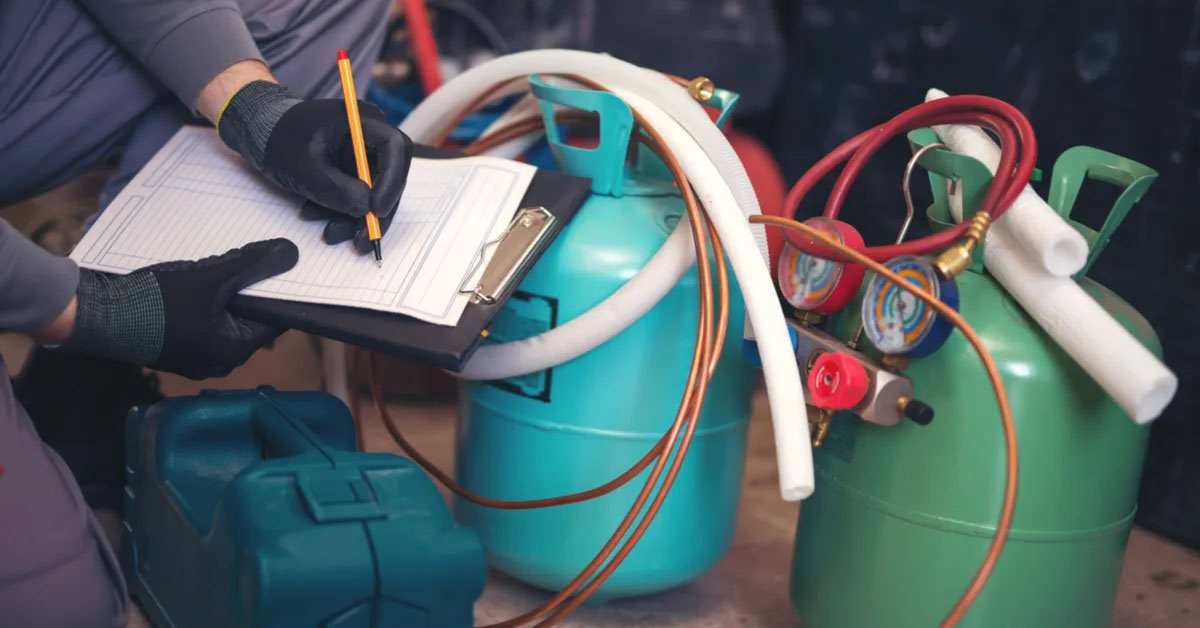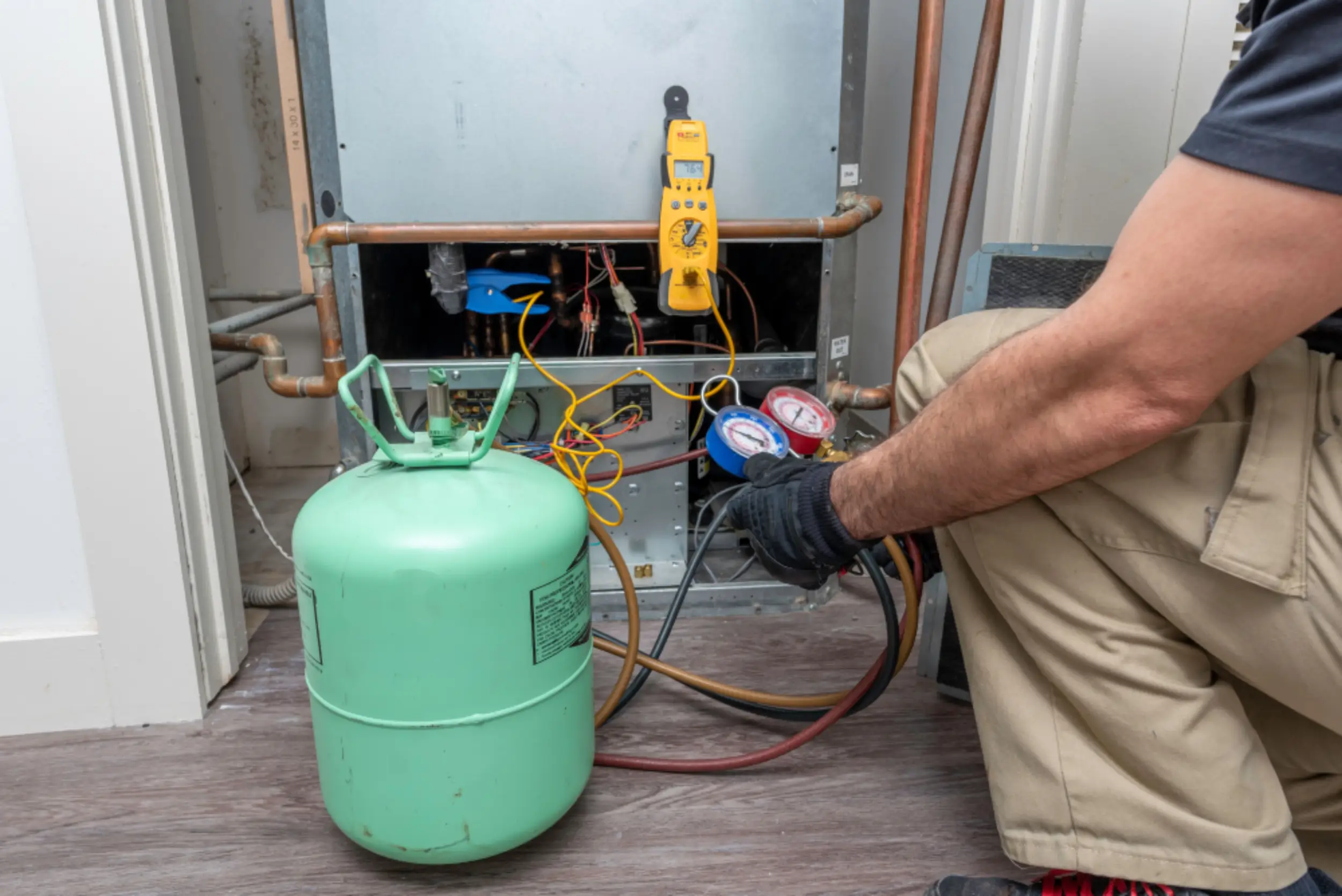Home>Home Maintenance>How Long Does Freon Last In An Air Conditioner
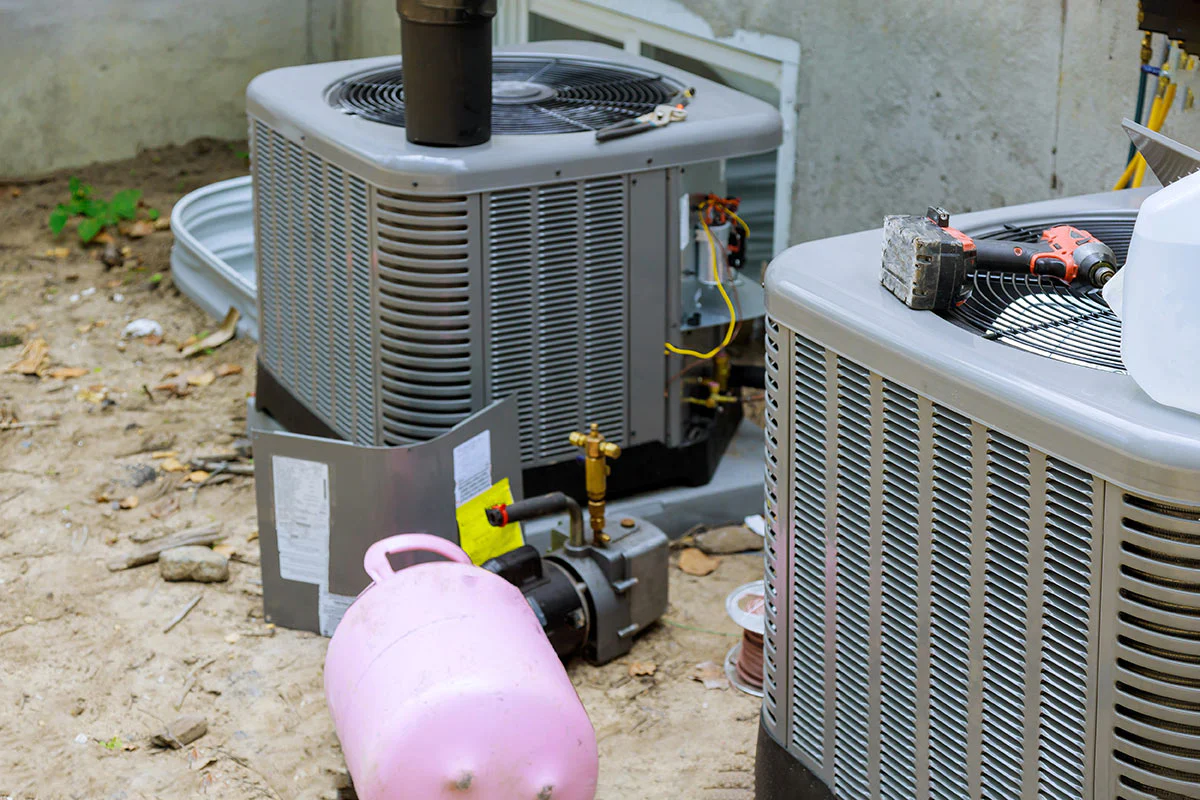

Home Maintenance
How Long Does Freon Last In An Air Conditioner
Modified: August 17, 2024
Learn how long Freon can last in an air conditioner and get expert insights on home maintenance. Discover tips to ensure your AC unit runs efficiently and lasts longer.
(Many of the links in this article redirect to a specific reviewed product. Your purchase of these products through affiliate links helps to generate commission for Storables.com, at no extra cost. Learn more)
Introduction
Welcome to the world of air conditioning! As homeowners, we rely on our air conditioners to keep us cool and comfortable during the scorching summer months. But have you ever wondered what makes your air conditioner tick? One crucial component in the air conditioning system is refrigerant, commonly known as Freon.
In this article, we will delve into the world of Freon and explore how long it typically lasts in an air conditioner. We will discuss the factors that affect its lifespan, signs of leakage, and steps you can take to extend its longevity. So, let’s dive right in!
Key Takeaways:
- Freon, the essential coolant in air conditioners, can last for 10-15 years in central units and 5-10 years in window units with proper maintenance. Signs of leakage include inadequate cooling and hissing sounds.
- To extend Freon’s lifespan, schedule regular maintenance, change air filters, and keep the outdoor unit clean. Promptly address signs of leakage and consult professionals for Freon replacement or recharging.
What is Freon?
Freon is a brand name for a group of chemicals known as chlorofluorocarbons (CFCs) or hydrochlorofluorocarbons (HCFCs). It was developed by the chemical company DuPont in the 1930s and has been widely used as a refrigerant in various applications, including air conditioning systems.
Freon is responsible for the cooling process in your air conditioner. When the air conditioner is turned on, the compressor compresses the Freon, raising its temperature. As the compressed, hot gas flows through the condenser coils, it releases heat and becomes a high-pressure liquid. This liquid then passes through the expansion valve, where it rapidly expands and evaporates, absorbing heat from the surrounding air. This cools down the air, which is then blown into your home through the air conditioner’s vents.
One important thing to note is that Freon is not consumed or used up during the air conditioning process. Instead, it continuously cycles through the system, reusing the same refrigerant over and over again.
However, due to its harmful impact on the environment, the use of Freon in new air conditioning systems has been phased out. Since the late 1990s, newer air conditioners have been using more eco-friendly refrigerants, such as R-410A, which do not contribute to ozone depletion.
Now that we know what Freon is and how it works, let’s explore how long it typically lasts in an air conditioner and what factors can affect its lifespan.
Understanding the Role of Freon in an Air Conditioner
To fully comprehend the importance of Freon in an air conditioner, it’s essential to understand its role in the cooling process. As mentioned earlier, Freon is the refrigerant that facilitates the transfer of heat from inside your home to the outside, resulting in a cooling effect.
When the air conditioning system is running, the compressor compresses the Freon gas, raising its temperature and pressure. This high-pressure gas flows through the condenser coils, typically located outside your home, where it releases heat to the surrounding environment. As a result, the Freon transforms into a high-pressure liquid.
The high-pressure liquid then moves through the expansion valve, which is located inside the air conditioning unit. The valve allows the liquid to rapidly expand and evaporate. This process absorbs heat from the surrounding air and cools it down. The cool air is then circulated back into your home through the air conditioner’s vents, providing a refreshing and comfortable indoor environment.
After absorbing heat from the indoor air, the now low-pressure and low-temperature Freon returns to the compressor, where the cycle starts again. This continuous cycle of compression, condensation, expansion, and evaporation is what keeps your air conditioner working efficiently.
It’s important to note that the role of Freon is not solely limited to cooling the air. It also helps lubricate the compressor, preventing it from seizing up or getting damaged. Additionally, Freon aids in maintaining the proper pressure levels in the air conditioning system, ensuring optimal performance.
However, it’s crucial to understand that Freon is not consumed or depleted during this process. It simply undergoes a phase change from gas to liquid and back to gas, repeatedly circulating through the air conditioning system. As long as there are no leaks or other issues, the same amount of Freon should remain in the system throughout its lifespan.
Now that we have a solid understanding of Freon’s role in an air conditioner, let’s explore the factors that can affect its lifespan.
Factors Affecting the Lifespan of Freon
The lifespan of Freon in an air conditioning system can vary depending on several factors. These factors can impact the efficiency and longevity of the refrigerant, ultimately affecting the overall performance of your air conditioner. Let’s take a closer look at some of the key factors that can influence the lifespan of Freon.
- Aging and Wear: Over time, wear and tear can occur in the various components of the air conditioning system, such as the compressor, condenser coils, and evaporator coils. Older systems may experience more wear, leading to potential leaks or reduced efficiency, which can impact the lifespan of Freon.
- Quality of Installation: Proper installation plays a crucial role in the lifespan of Freon. If the system is not installed correctly, it can result in refrigerant leaks or inefficient operation, putting unnecessary strain on the Freon. It’s essential to ensure that the air conditioner is installed by a qualified professional following manufacturer guidelines.
- Maintenance and Service: Regular maintenance and service are essential to keep your air conditioning system in optimal condition. Routine inspections can detect and address any potential issues, including refrigerant leaks or low Freon levels. Neglecting maintenance can lead to refrigerant problems and a shortened lifespan for the Freon.
- Environmental Factors: Extreme temperatures, high humidity, and exposure to contaminants can all impact the lifespan of Freon. These factors can put additional stress on the system, potentially leading to leaks or other refrigerant issues. It’s important to consider the environmental conditions in your specific region and take appropriate measures to protect the air conditioning system.
- System Size and Load: The size of the air conditioning system should be appropriately matched to the cooling needs of your home. An undersized unit may struggle to efficiently cool your space, leading to increased strain on the Freon. Additionally, excessive cooling loads due to factors like poor insulation or air leaks can also affect the lifespan of Freon.
It’s important to note that Freon leaks can significantly impact both the performance and lifespan of the refrigerant. If you suspect a leak, it’s crucial to address the issue promptly to prevent further damage to the system and ensure the longevity of the Freon.
Now that we understand the factors that can affect the lifespan of Freon, let’s explore how long it typically lasts in different air conditioner models.
Average Lifespan of Freon in Different Air Conditioner Models
The average lifespan of Freon in an air conditioning system can vary depending on the specific model and type of unit. Different types of air conditioner models have different requirements and may use Freon in different ways. Let’s explore the average lifespan of Freon in different air conditioner models.
- Central Air Conditioners: In central air conditioning systems, the average lifespan of Freon can range from 10 to 15 years. These systems typically have larger capacities and require a significant amount of refrigerant to operate efficiently. With proper maintenance and care, Freon in central air conditioners can last for a decade or more.
- Window Air Conditioners: Window air conditioners are commonly found in smaller spaces or individual rooms. These units tend to have smaller refrigerant capacities compared to central air conditioners. With proper care and regular maintenance, the lifespan of Freon in window air conditioners can be around 5 to 10 years.
- Ductless Mini-Split Systems: Ductless mini-split systems are a popular choice for homes without ductwork. These systems consist of an outdoor unit and one or more indoor units. The lifespan of Freon in ductless mini-split systems is similar to that of central air conditioners, ranging from 10 to 15 years.
It’s important to note that these estimates are based on general industry knowledge and average usage. The actual lifespan of Freon can be influenced by various factors, as discussed earlier.
As technology and refrigerant standards continue to evolve, it’s worth mentioning that newer air conditioning systems are transitioning away from using Freon altogether. Instead, they are adopting more eco-friendly refrigerants, such as R-410A, which have a lower environmental impact.
Now that we have explored the average lifespan of Freon in different air conditioner models, let’s move on to the signs that indicate a possible Freon leakage in an air conditioner.
Regular maintenance and proper usage can help extend the life of freon in an air conditioner. Keep the unit clean, change filters regularly, and have it serviced annually by a professional.
Signs of Freon Leakage in an Air Conditioner
Freon leakage in an air conditioner can lead to a myriad of problems, including reduced cooling efficiency and potential damage to the system. It’s important to be aware of the signs that indicate a possible Freon leak, so you can take appropriate action to rectify the issue. Here are some common signs of Freon leakage in an air conditioner:
- Inadequate Cooling: If you notice that your air conditioner is no longer cooling your space as effectively as it used to, it may be a sign of a Freon leak. Reduced levels of Freon can affect the cooling capacity of the unit, resulting in insufficient cooling even when the air conditioner is running at full power.
- Constantly Running Compressor: A Freon leak can cause the compressor to work overtime, as it tries to compensate for the lost refrigerant. If you hear the compressor running continuously, it could be an indication of a refrigerant leak and an underlying issue that requires attention.
- Hissing or Bubbling Sounds: When there is a leak in the refrigerant lines, you may hear hissing or bubbling sounds coming from the air conditioning unit. These sounds occur as the Freon escapes from the system under pressure, and they are a clear indication of a leak that needs to be addressed.
- Frozen Coil: Another sign of a possible Freon leak is when the evaporator coil inside the air conditioner freezes up. Insufficient refrigerant can cause the coil to become excessively cold, leading to ice buildup. If you notice ice on the coil or reduced airflow from the air conditioner, it’s crucial to investigate for a potential refrigerant leak.
- Increased Energy Bills: If you notice a sudden spike in your energy bills without any significant changes in your usage patterns, it could be a result of a Freon leak. When the refrigerant levels are low, the air conditioner has to work harder to cool the space, resulting in increased energy consumption.
- Oil Stains or Corrosion: Freon is often mixed with an oil lubricant in the air conditioning system. If there is a refrigerant leak, you may notice oil stains or signs of corrosion around the unit or refrigerant lines. These visual cues can help identify the location of the leak and the severity of the issue.
If you notice any of these signs, it’s essential to contact a professional HVAC technician to inspect your air conditioning system for a Freon leak. They can accurately diagnose the issue and perform the necessary repairs or recharge the refrigerant as needed.
Now, let’s explore some steps you can take to extend the lifespan of Freon in an air conditioner.
Extending the Lifespan of Freon in an Air Conditioner
While the lifespan of Freon in an air conditioning system can be influenced by various factors, there are steps you can take to help extend its longevity. By following these guidelines, you can ensure that your air conditioner operates efficiently and the Freon remains in good condition for longer. Here are some tips for extending the lifespan of Freon in an air conditioner:
- Regular Maintenance: Schedule regular maintenance for your air conditioner with a qualified HVAC technician. They will inspect the system, clean the coils, check for refrigerant leaks, and ensure optimal performance. Routine maintenance helps identify potential issues early on and prevents Freon leaks that can shorten its lifespan.
- Change Air Filters: Regularly change the air filters in your air conditioning system. Clogged or dirty filters restrict airflow, causing the system to work harder. This can lead to increased stress on the Freon and potentially decrease its lifespan. Clean filters ensure proper airflow and improve the overall efficiency of the air conditioner.
- Keep the Outdoor Unit Clean: The outdoor unit of your air conditioner should be kept clean and free from debris. Remove any leaves, grass, or dirt that may accumulate around the unit, as they can obstruct airflow and hinder the system’s performance. Additionally, ensure that there is ample space around the unit for proper airflow.
- Seal Ductwork: Inspect your home’s ductwork for any leaks or gaps and seal them appropriately. Leaky ducts can cause cool air to escape, leading to increased cooling loads and strain on the Freon. Sealing ducts helps maintain proper airflow and reduces energy consumption.
- Protect from Extreme Temperatures: Extreme temperatures can put stress on the air conditioning system and the Freon. During heatwaves or cold snaps, take measures to protect the unit, such as providing shade for the outdoor unit or insulating exposed ductwork. These precautions help maintain a more stable environment for the Freon.
- Avoid Overworking the System: Avoid overworking your air conditioner by setting appropriate temperatures. Excessive cooling demands can strain the system and lead to increased wear on the Freon. Optimal temperature settings balance comfort with energy efficiency and help extend the lifespan of the refrigerant.
By following these tips and staying proactive in the maintenance of your air conditioning system, you can help extend the lifespan of Freon and ensure optimal performance. However, it’s important to note that Freon will eventually need to be replaced and recharged due to natural wear and tear. Let’s explore this process in the next section.
When should you consider replacing or recharging the Freon in your air conditioner? Find out in the next section.
Freon Replacement and Recharging
Over time, the Freon in an air conditioning system can naturally diminish due to normal wear and tear. This can lead to a decrease in cooling efficiency and performance. When Freon levels become low or when there is a confirmed refrigerant leak, it may be necessary to replace or recharge the Freon. Let’s explore the process of Freon replacement and recharging:
1. Detection of Low Freon Levels: If you suspect that your air conditioner has low Freon levels, it’s essential to contact a professional HVAC technician to assess the situation. They will conduct a thorough inspection of the system, including checking for leaks and measuring the refrigerant levels using specialized equipment.
2. Identification of Refrigerant Leak: If a refrigerant leak is detected, the technician will locate the source of the leak and determine the severity of the issue. Depending on the size and location of the leak, repairs may be needed before proceeding with Freon replacement.
3. Freon Replacement or Recharging: If the Freon levels are low but there are no leaks detected, the technician will proceed with either replacing the depleted Freon entirely or recharging the existing refrigerant. This involves adding the appropriate amount of Freon to the air conditioning system to restore optimal levels.
4. Leak Repair: In the case of a refrigerant leak, the technician will perform the necessary repairs to fix the issue. This may involve replacing damaged components, such as seals or gaskets, or addressing any other underlying issues contributing to the leak. Once the repair is complete, the Freon can be replenished.
5. Verification and Testing: After the Freon replacement or recharging process, the technician will verify that the system is functioning properly. They will test the air conditioner to ensure that the refrigerant levels are within the required specifications and that there are no further leaks or issues affecting the performance of the system.
It’s important to note that handling and working with refrigerants like Freon should only be done by licensed professionals who are trained in refrigerant handling and disposal. Attempting to recharge or replace Freon without the proper knowledge and equipment can lead to safety hazards and further damage to the air conditioning system.
By addressing low Freon levels or refrigerant leaks promptly and consulting with a qualified technician, you can ensure that your air conditioning system operates efficiently and effectively.
Now, let’s conclude our exploration of Freon and its lifespan in an air conditioner.
Conclusion
In conclusion, Freon is a vital component in an air conditioning system, responsible for the cooling process that keeps us comfortable during hot summer months. Understanding the role of Freon and its lifespan can help homeowners maintain their air conditioners effectively and ensure optimal performance.
While the lifespan of Freon can vary depending on factors such as system type, maintenance, and environmental conditions, taking certain measures can help extend its longevity. Regular maintenance, timely repairs of refrigerant leaks, and proper usage of the air conditioner can all contribute to prolonging the lifespan of Freon.
It’s important to remain vigilant and be aware of signs of Freon leakage, including inadequate cooling, constantly running compressors, hissing or bubbling sounds, frozen coils, increased energy bills, and the presence of oil stains or corrosion. Addressing these signs promptly and consulting with a professional HVAC technician can prevent further damage and ensure the longevity of the Freon.
If low Freon levels or refrigerant leaks are detected, the air conditioner may require Freon replacement or recharging. It’s crucial to entrust this task to licensed professionals who have the knowledge and expertise to handle refrigerants safely and effectively.
As technology evolves, newer air conditioning systems are transitioning to eco-friendly refrigerants that have a lower environmental impact than Freon. These newer refrigerants, such as R-410A, are being used in newer air conditioners to comply with environmental regulations and provide more sustainable cooling solutions.
In conclusion, understanding how Freon works, its lifespan, and the necessary steps to extend its longevity can help homeowners maintain their air conditioning systems and avoid costly repairs. By staying proactive with maintenance, addressing any signs of leakage promptly, and partnering with professionals, you can enjoy the cooling comfort of your air conditioner for years to come.
Frequently Asked Questions about How Long Does Freon Last In An Air Conditioner
Was this page helpful?
At Storables.com, we guarantee accurate and reliable information. Our content, validated by Expert Board Contributors, is crafted following stringent Editorial Policies. We're committed to providing you with well-researched, expert-backed insights for all your informational needs.
